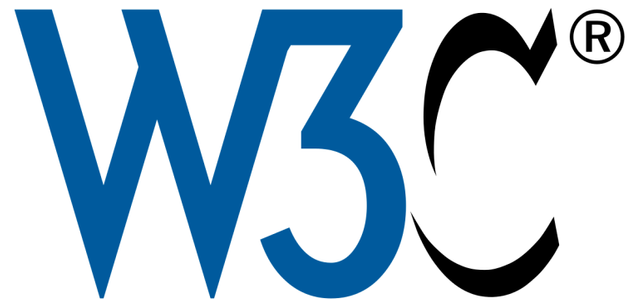
The best possible development for cryptocurrency is currently underway: widespread use as a payment mechanism. For years the crypto community has been holding its breath waiting for the day when digital currencies are widely adopted and easy to use securely. That day may be closer than we think.
Here comes the BOOM!
Since 2013, the World Wide Web Consortium (W3C) has been developing a browser API designed to introduce many new payment types, including online fiat payment methods and cryptographically secured blockchain-based currencies alike. W3C is “an international community that develops open standards to ensure the long term growth of the internet,” and it is backed by powerhouses Google, Apple, Microsoft, and Mozilla. To be sure, each of their respective mainstream browsers will make use of this new payment technology on rollout, with Facebook arming its in-app browser as well.
Much of the buzz surrounding this announcement comes from the blockchain community, as this represents potential widespread adoption of cryptocurrencies. The W3C is no stranger to blockchain, having hosted a blockchain workshop in June 2016. Now it has announced its intent to mesh a Payment Request API with mainstream browsers and digital wallets. In other words, your bitcoin, litecoin, ether, or other cryptocurrency may soon be stored, tracked, and spent through browser-based wallets. In the September 14th W3C Payment Request API press release, it states:
“With these technologies, users no longer complete Web forms to provide payment credentials, shipping information, and contact information. Instead, the user registers support for different payment methods —such as card payments, proprietary native mobile payments, bitcoin or other distributed ledgers, or credit transfers— with the browser or other user agent.”
Take a closer look
In paragraph 1.1 of the same press release, the document outlines the following as primary goals for the W3C:
Allow the user agent to act as intermediary between merchants, users, and payment method providers. Enable user agents to streamline the user’s payment experience by taking into account user preferences, merchant information, security considerations, and other factors. Standardize (to the extent that it makes sense) the communication flow between a merchant, user agent, and payment method provider. Enable payment method providers to bring more secure payment transactions to the web.At face value this all sounds delightfully rosy. After all, who doesn’t like straightforward, trusted processes and secure payment? But take a closer look at the first bullet. “User agent to act as intermediary between merchants, users, and payment method providers.” Intermediary is a word tossed around often by the crypto community, generally with a negative connotation, as middlemen often introduce fees and restrictions. The whole movement is supported by the idea that decentralized marketplaces, payments, currencies, storage spaces, etc. can function more efficiently than the alternative, resulting in better user experiences moving forward. This will likely serve to centralize the use of decentralized currencies. It could be one step forward for cryptocurrency, but one step backward for mankind.
Do alternatives exist?
Truly decentralized internet and browsers are already hitting the market. Take a look at MaidSafe, a crowd sourced internet alternative. On a network called the SAFE Network, it uses advanced peer-to-peer technology to harvest spare computing power to cryptographically secure user’s data and applications. Participating in the system rewards users with tokens called Safecoins and added protection from data theft and surveillance. The program is currently in public alpha testing.
Potentially, MaidSafe can work hand-in-hand with Blockstack Browser, a decentralized internet browser.

Payment API Project Timeline
Testing and integration is a difficult process that requires a considerable joint effort between the developers and merchants. Once the project is completed on the W3C’s end and released, merchants will still need to build their websites around the new payment methods. No final release date has been specified, but the October 23rd demo will provide a much anticipated progress update. Google will headline the demo accompanied by Airbnb and Mastercard.
Which option is best for you?
To be clear, the W3C payment API project is revolutionary, and the attention it will draw is warranted. It is carrying online payments forward into the digital future, an upgrade that is long overdue. The intent here is to present an unbiased look at both sides of the coin, mainstream options vs revolutionary alternatives. Both are still in their developing stages, and the first to launch fully functional systems will have a market share advantage. Be sure to evaluate each of them objectively post-release, weighing ease of use against privacy and security concerns.
source - www.cryptoanswers.net
Copying/Pasting full texts is frowned upon by the community.
Some tips to share content and add value:
Repeated copy/paste posts could be considered spam. Spam is discouraged by the community, and may result in action from the cheetah bot.
Creative Commons: If you are posting content under a Creative Commons license, please attribute and link according to the specific license. If you are posting content under CC0 or Public Domain please consider noting that at the end of your post.
If you are actually the original author, please do reply to let us know!
Thank You!
Downvoting a post can decrease pending rewards and make it less visible. Common reasons:
Submit
Hi! I am a robot. I just upvoted you! I found similar content that readers might be interested in:
https://cryptoanswers.net/w3c-widespread-payment-integration/
Downvoting a post can decrease pending rewards and make it less visible. Common reasons:
Submit